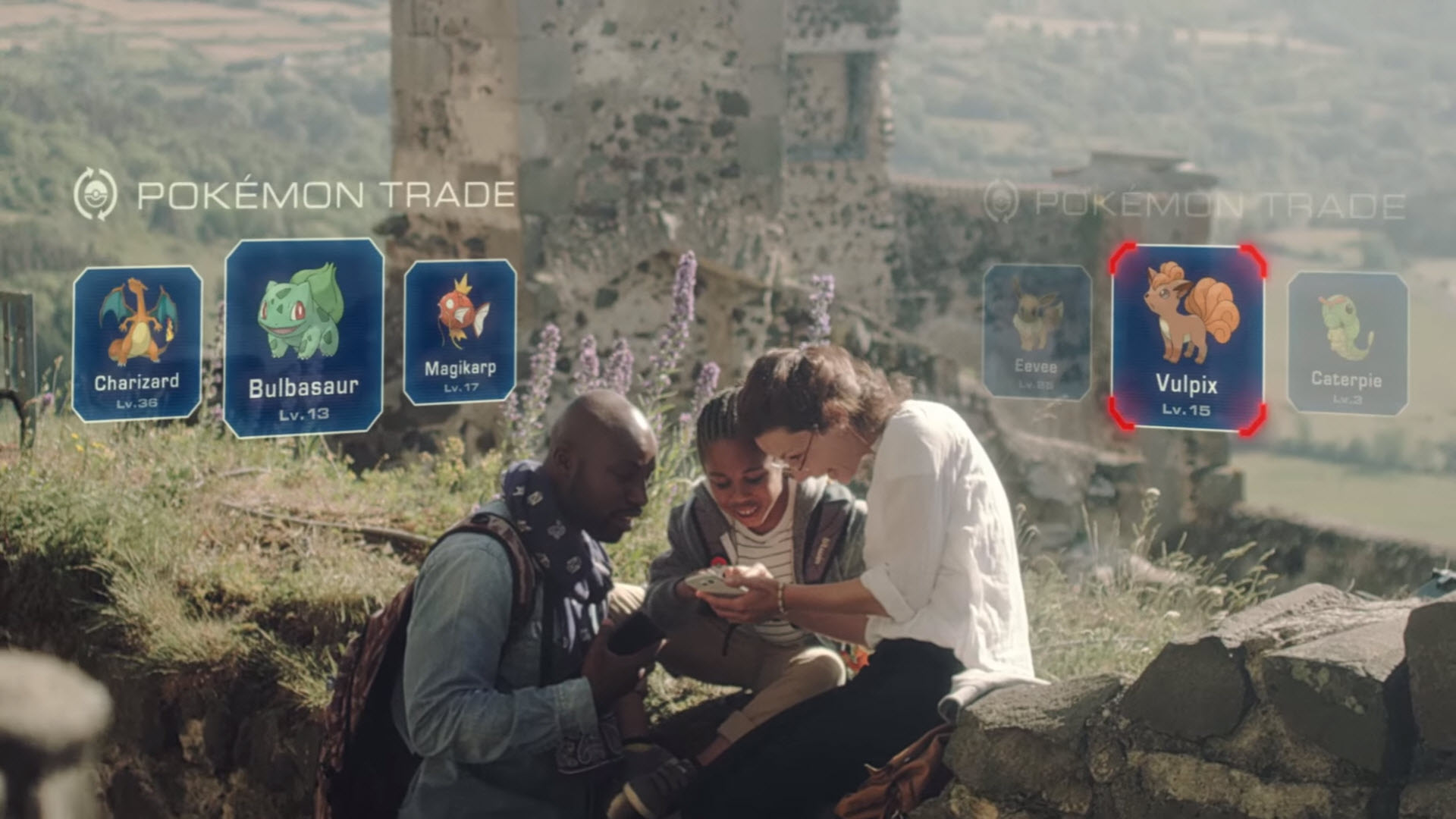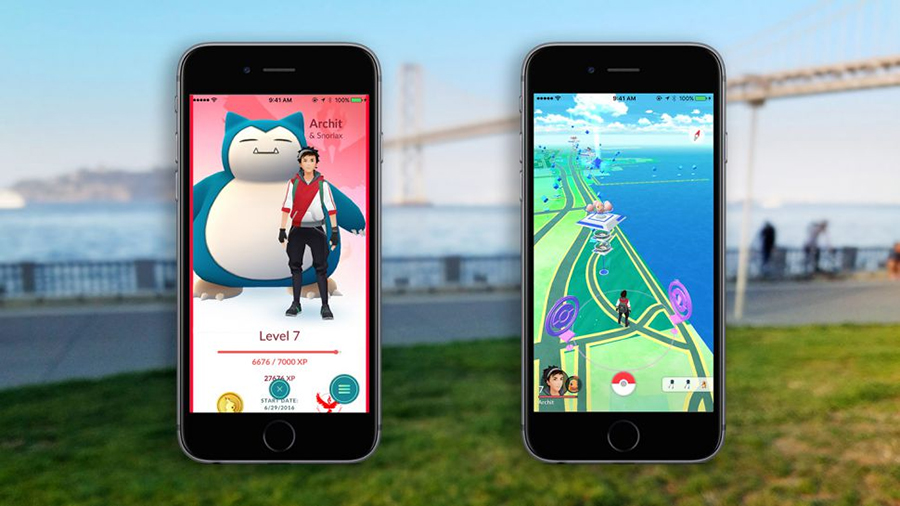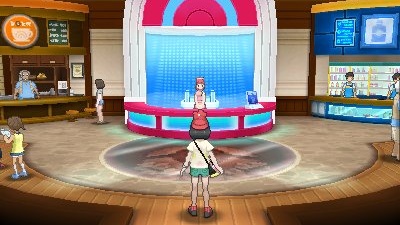Was Pokemon Go inadvertently the best promotional tie-in of all time?
Success breeds success

The series might be 20 years old, but a recent announcement from Nintendo that its new titles, Pokémon Sun and Moon, are now the fastest selling games in North America proves it still has a lot of life in it yet.
Yes, Pokémon is selling better than ever but this isn’t just down to a good marketing campaign from Nintendo; we think it almost certainly had something to do with Pokémon Go. You’d have to have been hiding in Diglett’s Cave this summer to have missed the borderline overwhelming coverage of Niantic’s mobile game.
Although Nintendo didn’t actually have a hand in making the game, a fact that actually made its share prices suffer when it was revealed, the company must be laughing now after Pokémon Go has arguably become the best advert Pokémon Sun and Moon could have asked for.
Pokémon Go and nostalgia
Of course, fans of the series will know that Pokémon never actually went anywhere. Coverage of Pokémon Go made it feel like the series was just the latest popular nineties franchise to have risen and stumbled from the nostalgia graveyard but to be as successful as it was. Pokémon Go needed the already existing success of the Pokémon franchise behind it.
Since the release of Red and Blue in 1999, Nintendo has been releasing new titles which consistently sell millions.
Pokémon X and Y, which were released in 2013, have sold 15.64 million copies worldwide. This is no small number. However, according to Nintendo, Sun and Moon have left X and Y's sales in the dust with an increase of around 85%.

This is an incredible increase and a marked turnaround on what were good but still declining sales, and it’s highly likely Pokémon Go has contributed massively to it. Why? Well, it’s not just fans that are picking up the games this time.
Get daily insight, inspiration and deals in your inbox
Sign up for breaking news, reviews, opinion, top tech deals, and more.
Pokémon was never unsuccessful, but Pokémon Go has undeniably increased interest in the franchise. Its existing millions of fans notwithstanding, there are now millions more people who have either been reminded how much they used to love the series or introduced to it thanks to Pokémon Go.
Its mobile free-to-play availability made Go accessible to a much wider range of people and offered an interesting twist on play, and its use of augmented reality added another element of novelty.
Rekindled interest
The thing about Pokémon Go that would have really helped bring lapsed fans back into the series is that it’s an appealing taster of the more full Pokémon experience. Though new features are just being added to Pokémon Go that are broadening and improving the gameplay experience, the game isn’t capable of offering the same depth that will hold everyone’s interest for an extended period.
So, for anyone who found themselves enjoying Pokémon Go but lost interest due to their desire for a deeper and more involved game, Sun and Moon have come along at the perfect time.
It really is great timing that Pokémon Sun and Moon are coming out now that Pokémon Go has been available long enough to see a natural dip in player interest which is likely to worsen in light of the cold winter weather.

Not really in the mood to go out in the cold and catch Pokémon on your phone? No problem, you can stay in and catch them on your sofa on a warm Hawaiian-inspired island. The escapism offered by Sun and Moon are the perfect balance to the in-the-moment augmented reality of Pokémon Go.
Nintendo might not have had a large hand in the development of Pokémon Go, but this is a good example of how mobile and console gaming can work together to make a more rounded gaming experience for players. A game world that has strengths on both mobile and console, and plays to them well, will naturally have a wider reach and hold player attention for a longer period.
Fallout Shelter is another good example of how this can work; mobile and console games don’t have to compete, they can be used together to create a longer and more varied gaming experience.
Recipe for success
In game worlds as rich and involving as Pokémon and Fallout, it’s rare that people will lose interest quickly, they’ll just lose interest in how they’re experiencing it at one particular moment.
Giving players a different entry point into the game world that offers a lighter model of play and requires less concentration and commitment is a great palate cleanser. It's also a quick and easy way to remind them of the basic things about the game they love and makes it much more likely they’re going to want to return to the deeper version as soon as they’re able.
Nintendo itself said earlier in the summer that Pokémon Go had helped to boost sales of its Nintendo 3DS console. Sales increased 80% year-on-year making it the best selling system of July 2016 as people returned to the system to re-enter the Pokémon world and find out how it might have changed since they last played.

There’s a sense within Sun and Moon that Nintendo had an inkling it might be seeing more than a few new fans picking up Pokémon Sun and Moon since these titles feel like the biggest refresh, and hence entry point, we’ve seen in the series for a while.
For example, there’s a feature that reveals the effectiveness of moves during battles which, though it feels annoyingly like hand-holding to long-time fans, would be particularly useful for those coming into this deeper kind battling from the repetitive tapping of Pokémon Go.
We know Pokémon Sun and Moon were always going to be a success and, as you’ll see from our review, they’re such good games that they deserve their success.
However, it’s hard to pretend that Pokémon Go wouldn’t have had some kind of impact on the sheer scale of this success. It looks like Pokémon is returning to pop culture in a big way and it’s not unlikely that we’ll eventually see Pokémon Go and the mainline Pokémon games feed into one another more in the future.
- Thinking about picking up a 3DS? These are the best Nintendo 3DS deals for Christmas
Emma Boyle is TechRadar’s ex-Gaming Editor, and is now a content developer and freelance journalist. She has written for magazines and websites including T3, Stuff and The Independent. Emma currently works as a Content Developer in Edinburgh.
